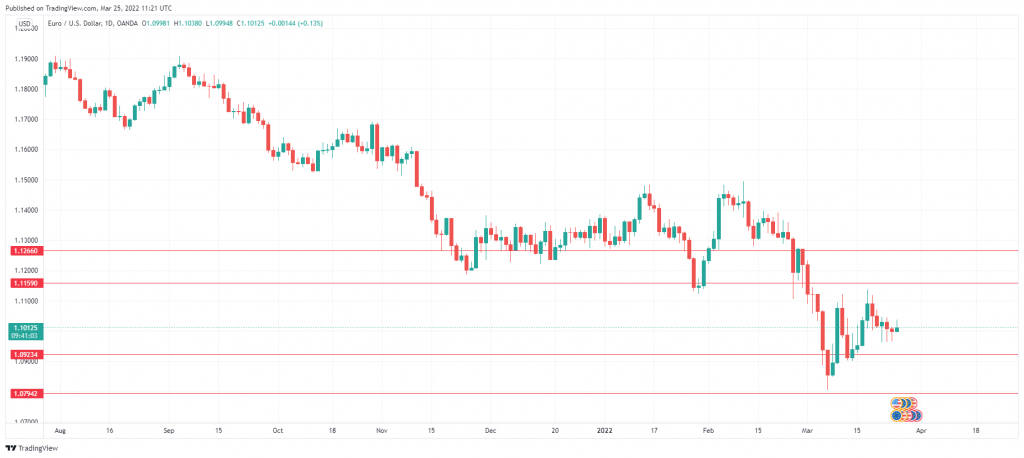German Ifo Index slides
The week wrapped up on a sour note out of Germany, as the Ifo Business Climate Index fell sharply in March. The headline reading came in at 90.8, down from 98.5 in February. The decline was glaringly apparent in the expectations component, which plunged from 99.2 to 85.1 points.
Germany had been enjoying a robust rebound recently, but the crisis in Ukraine has dramatically changed for the worse the economic outlook for the economy. Energy and commodity prices have been soaring and stagflation remains a scary scenario for central banks everywhere, including the ECB. The war will only exacerbate supply chain disruptions, which started in the emergence from the dark days of Covid. With the Russians bogged down in their military campaign,
The German economy is highly dependent on Russian energy imports, and the export-reliant economy is vulnerable to energy disruptions and a potential downturn in global demand.
Germany could report a contraction in growth in the first quarter, which would mean that technically the country is in recession since Q4 showed negative growth. If Germany continues to post weak numbers, it will weigh on the eurozone growth and on the euro.
In the US, unemployment claims fell to 187 thousand, its lowest level since 1969. The numbers point to a robust labor market, as companies continue to struggle to find enough workers to fill openings. Federal Reserve Chair Powell and other Fed officials continue to convey a hawkish tone, as the Fed seeks to reassure the markets that it is bent on wrestling down inflationary pressures, which have hit 40-year highs.
.
EUR/USD Technical
- 1.0923 is the first line of support, followed by 1.0794
- There is weak resistance at 1.1030, followed by 1.1159
